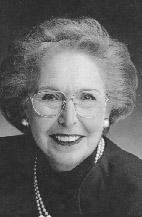Mr. Speaker, on May 21 it was my distinct privilege to witness the presentation of a heraldic coat of arms to the 231 year old Spanish and Portuguese Synagogue of Montreal. Its design reflects the cultural origins of this unique institution.
Red and gold colours encircle the crest representing its members Sephardic Jewish origin from Spain and Portugal. Four columns in silver symbolize the four different locations they have occupied since 1768. The 10 commandments crested by a red maple leaf on the crown reflects Canada, where the Jewish population found haven and security from war and discrimination.
This synagogue has evolved over the years. Today it is multicultural and multilingual, with members coming from the Middle East and Europe.
The congregation, led by Rabbi Howard Joseph, has had many distinguished community and civic leaders who have contributed to our society's growth and development, including a Montreal police chief, as well as the founders of the Montreal Waterworks, the Montreal Board of Trade, the Bank of Montreal, la Banque Nationale, Canada Steamships Lines, the Theatre Royale and its members who continue to be active and contributing citizens.
In essence, this coat of arms says—

